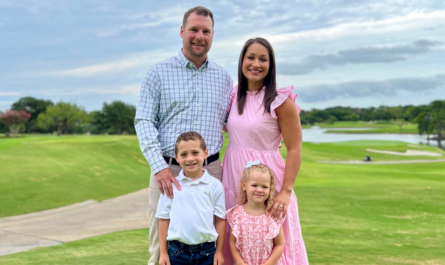Editor’s Note: Dr. Edward Meckler is the Founder and Chairman of Dental One partners, one of the founding member organizations of Dental Group Practice Association. Most recently, Dr. Meckler played a key role in forming a dentist-led group called Dentists for Oral Health Innovation.
A conversation on trends, and the future of dentistry, with industry thought leader Dr. Edward Meckler
Efficiency in Group Practice: How have you seen the marketplace for dental practices and groups change in the last 5-10 years?
Dr. Edward Meckler: The marketplace for dental group practices or Dental Support Organizations (DSOs) has grown significantly over the past 5-10 years and we anticipate that it will continue to evolve as a valued option for future practitioners. The American Dental Association (ADA) recently released a report on the changing dental landscape that found dentists who had completed their dental education within the past ten years were three times more likely to be part of a larger dental practice than those who completed their education more than ten years ago.1 Additionally, the ADA’s Health Policy Resources Center found that large dental practices have increased by 25 percent in just two years.2
It is imperative to also look at the larger state of dental care in the United States. Lack of access to dental care has become an epidemic. It’s estimated that 47 million Americans have little or no access to affordable dental services, and many, regardless of whether or not they have dental insurance, live in areas of the country with few (if any) dentists. Most states have just 65 dentists per 100,000 people, fewer than the number of physicians for that same number of people.3
As the nation continues to address the complicated issues of health care, DSOs offer important, sustainable solutions that significantly benefit dentists and, more importantly, their patients. DSOs enable dentists to devote more time to treating patients who need care and less time to paperwork and other aspects of running a business. This model also allows dentists to refine their skills as clinicians and maximize their professional potential. Overall, it has become a very attractive option in recent years.
Efficiency: How are group practices positioned in the current marketplace? How does this compare to the individual dental office?
Meckler: DSOs are very well positioned in the current marketplace. The DSO model provides its affiliated dentists with non-clinical administrative support services, enabling dentists to spend more time on patient care, not paperwork. There is value in the support DSOs provide affiliated practitioners, and as I noted prior, dentists are attracted to the business model, from seasoned professionals interested in an alternative model that affords them a better quality of life to younger dentists dealing with the financial hurdles of dental school debt.
The private practice model, of course, continues to be a viable option for new dentists. According to the ADA, 92 percent of the 190,000 practicing dentist across the U.S. are in private practice, with more than 80 percent being practice owners.1 Dentists enjoy the independence of owning and managing a business. Despite its commonality, there are major challenges for the private practitioner, from financial hurdles to juggling the backend tasks of owning a company. It’s estimated that dentists invest up to 30 hours per week to manage business details, taking away valuable chair-side time with patients. Additionally, starting a private practice can be cost-prohibitive, particularly for those faced with significant amounts of school debt. The average dentist leaves school with debt ranging from $150,000 to $300,000, and technologies such as digital radiography can cost a practice $52,000 per year to remain competitive.
Efficiency: What are some of the best practices you’ve seen from leading DSOs?
Meckler: The best practices I have seen, and continue to see, is the ongoing dedication from DSO affiliated dentists serving communities where residents often lack access to convenient, affordable quality dental care. DSO affiliated dentists often partner on initiatives that support communities at home, across the United States, and around the world.
It’s estimated that DGPA member organization affiliated dentists, from DSOs such as Heartland Dental, Pacific Dental, Smile Brands, Aspen Dental and Great Expressions, have provided millions of dollars in free care annually to patients nationwide and abroad, through activities ranging from mobile dental clinics to free in-office weekend visits.
DSOs enable dentists to provide services in communities that need it through the support services they offer. Dentists benefit from using the administrative support services of DSOs for tasks including facility maintenance, supply procurement, and scheduling support. By contracting with DSOs for non-clinical administrative services, these dentists expand access to dental care by devoting more of their time to the delivery of high-quality, cost-effective care to patients and less time to administrative duties.
DSO affiliated dentists are also given buying power to obtain the newest in dental equipment, helping them stay ahead of the curve with the ongoing changes taking place in dentistry. This is important not only for the dentist, but the patients they serve as well.
Efficiency: What are the biggest challenges facing group practices today?
Meckler: The United States is facing a serious dental divide, with an estimated 47 million Americans having little or no access to affordable dental services. Many patients face a number of barriers to oral health access, whether geographical, financial, or educational. The Department of Health Resources and Services Administration found that some states have just 65 dentists per 100,000 people – fewer than the number of physicians for that same population.4 Additionally, as many as 130 million Americans live without dental insurance coverage, with many Americans not understanding the integral role oral health plays in general health.4 This is a major challenge we are facing now and DSO affiliated dentists are dedicated to bridging the dental divide and improving patient access to quality care.
Efficiency: Has there been any impact in regards to health reform?
Meckler: While the ACA does expand access for dental services under Medicaid, for children and some adults, it is universally regarded as falling short in trying to meet our country’s oral health care needs both through funding and policy changes. The ADA Health Policy Resources Center issued a policy brief stating that the quality of dental benefits and access to dental care that adults will receive as a result of ACA will not be sufficient to promote good oral health.
The DSO model is critical to helping address these issues in dentistry and help meet those challenges. DSOs allow new dentists to enter the marketplace and set up practices in regions where it may otherwise be difficult for a solo practitioner. DSOs’ efficient administrative practices enable dentists to accept a greater number of insurance plans and enable them to spend as much time as possible chair-side with their patients. And many DGPA member companies have a strong commitment to philanthropy, and encourage their dentists to identify underserved populations within their communities and to offer free dentistry.
Efficiency: What about customer expectations, have they changed?
Meckler: No. Patients always want quality dental care. That expectation has never changed. The DSO model has been designed to enable dentists to refine their skills as clinicians and maximize their professional potential, resulting in quality patient care.
Efficiency: What will be some of the leading themes, and challenges, in the next 5-10 years?
Meckler: As noted earlier, the ADA’s Health Policy Resources Center found that large dental practices have increased by 25 percent in just two years.2 So as we look at the next 5-10 years in dentistry, this rapid growth indicates that DSOs – while not the only practice model – will continue to represent a significant sector of dentists.
Sources:
1. http://www.ada.org/sections/professionalResources/pdfs/Escan2013_Diringer_Full.pdf
2. http://www.ada.org/news/6947.aspx
3. Henry J. Kaiser Family Foundation – Oral Health in the US: Key Facts – June 2012
4. http://www.hrsa.gov/shortage/
Sidebar: Strengths of the DSO
More time chair-side.
DSOs’ efficient administrative practices enable dentists to accept a greater number of insurance plans and enable them to spend as much time as possible chair-side with their patients.
More time for charity.
Many DGPA member companies have a strong commitment to philanthropy, and encourage their dentists to identify underserved populations within their communities and to offer free dentistry.
Sidebar: Edward H. Meckler, DMD
Edward H. Meckler, DMD
Executive Director,
Dentists for Oral Health Innovation
Chairman and Founder, DentalOne Partners
Associate Professor, Case Western Reserve University School of Dentistry
Dr. Ed Meckler serves as executive director of DOHI. He is also the chairman of the board for DentalOne Partners Inc., a position he has held since 1981.
Dr. Meckler holds a number of positions in organized dentistry. Notably, he previously served as the executive director of the Dental Group Practice Association. He is also a member of the American Dental Association Business Enterprises, Inc. Board, a past delegate and a current alternative delegate to the Ohio Dental Association and a past alternate delegate to the American Dental Association. He is a member of the Advisory Board to Case Western Reserve School of Dental Medicine and is a Fellow in the International College of Dentists. He is also a member of the Dental Honor Society of the Pierre Fauchard Academy.
Dr. Meckler is a strong advocate for improving education in dentistry and serves as an associate clinical professor at Case Western Reserve School of Dental Medicine. He received his DMD from Case Western Reserve University School of Dental Medicine and his BS from Ohio State University.





